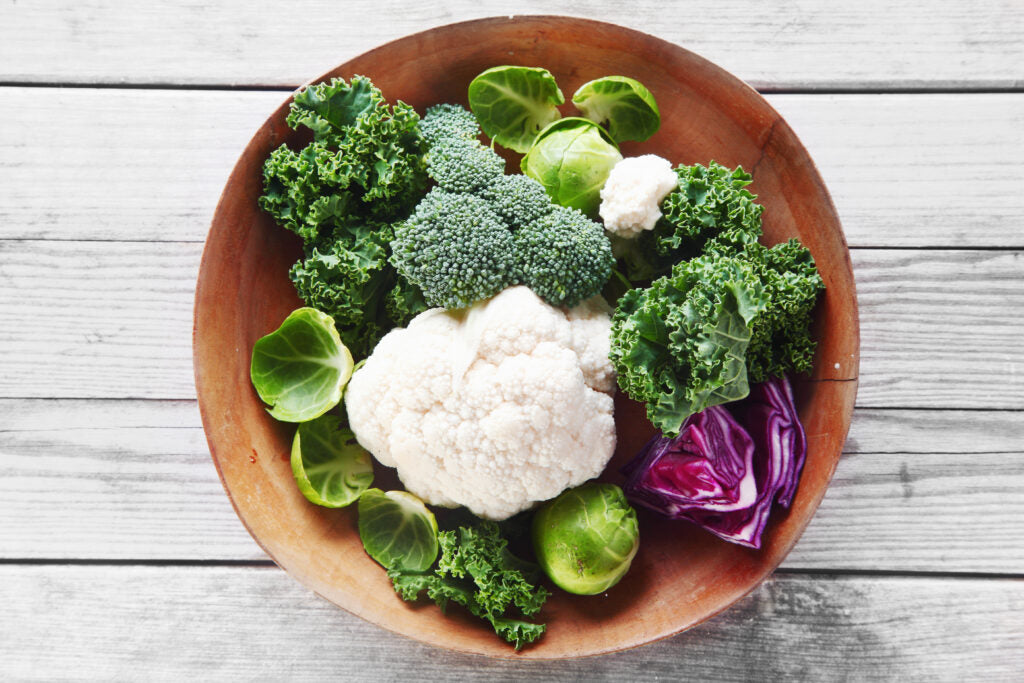Glutathione – what is it and why does it support our health?
Contents:
- What role does glutathione play in our body?
- How does glutathione help us and when is it worth using?
- What are the contraindications and side effects of using glutathione?
- How can you supplement glutathione?
Glutathione is an important antioxidant that helps protect cells from oxidative stress and supports detoxification. It is necessary for the proper functioning of the liver, immune system, and metabolic processes. Its levels can be measured in the diagnosis of various diseases, including liver disease and immunological disorders. Reduced glutathione levels can result from chronic oxidative stress, infection, or an unhealthy diet. It can be increased through supplementation, a diet rich in vitamins C and E, selenium, sulfur, and physical activity.
What role does glutathione play in our body?
Glutathione is a natural tripeptide composed of three amino acids—glutamic acid, cysteine, and glycine. This molecule contains sulfur, which gives it unique antioxidant properties. It acts as the body's natural defender against oxidative stress, which can be caused by factors such as stress, air pollution, UV radiation, or an unhealthy diet. Thanks to this protection, glutathione helps reduce the risk of developing many diseases, including cancer and circulatory problems.
The body synthesizes glutathione itself, and its primary production site is the liver. However, its production requires appropriate nutrients, including amino acids such as methionine and cysteine. Therefore, a diet rich in these substances is essential. Sources of cysteine and methionine include meat, fish, poultry, and vegetables such as broccoli, Brussels sprouts, cauliflower, and kale. Regular consumption of these foods supports glutathione synthesis and maintains antioxidant balance in the body.
How does glutathione help us and when is it worth using?
Glutathione supplementation is recommended, but it's always worth consulting a doctor before starting, especially if you're taking medication on a long-term basis. Glutathione, known for its powerful antioxidant, detoxifying, and immune-supporting properties, also has a number of other positive health effects, particularly related to chronic diseases. It supports the body in the fight against inflammation, heart disease, and neurodegenerative disorders, and improves mental health. Let's look at how glutathione can support the body with various conditions:
- Supports the fight against inflammation – Glutathione blocks inflammatory markers and reduces their activity, which helps reduce inflammation, especially in the respiratory system and lungs.
- Treatment of cardiovascular diseases – a good concentration of glutathione reduces the risk of oxidative stress, which can help prevent heart attacks and strokes, as well as the development of atherosclerosis.
- Protection against neurodegenerative diseases – the reduced level of glutathione in the body of older people promotes the development of diseases such as Alzheimer’s or Parkinson’s, therefore its supplementation can contribute to the protection of brain cells,
- Boost mental health – Low glutathione levels occur in people with depression and obsessive-compulsive disorder. Supplementation can help improve your mood and reduce the symptoms of these conditions.
What are the contraindications and side effects of using glutathione?
Glutathione is a natural ingredient produced by the human body, so supplementing it is safe in most cases. However, there are some important points to keep in mind. First, people who are allergic to any of the supplement's ingredients should avoid use. Before starting glutathione supplementation, you should consult your doctor or pharmacist to ensure there are no contraindications to taking it. Furthermore, due to the lack of sufficient research on the safety of glutathione during pregnancy and breastfeeding, women with these conditions should avoid supplementation or consult a doctor.
It's important to remember that the purpose of supplementing various nutrients is to maintain the body in a state of natural balance, i.e., homeostasis. Excessive intake of certain substances can disrupt this delicate balance and lead to adverse reactions. One example is glutathione supplements, which, if taken in excess, can cause unpleasant side effects such as abdominal pain, bloating, or allergic skin rashes.
How can you supplement glutathione?
Glutathione supplements are available in various forms: capsules, tablets, powders, gels, and aerosols. It's worth looking for the "L-glutathione" label, which indicates the form of the chemical isomer that is more easily absorbed by the body. The "L" isomer is biologically active, while the "D" isomer has no benefit in the human body, although supplements without the "L" in the name aren't necessarily inferior.
Liposomal glutathione is a form in which the substance is encapsulated in microcapsules. This protects it from the effects of digestive enzymes, improving its absorption. However, the best absorption is achieved when glutathione is administered intravenously, bypassing the digestive system.
Glutathione is a natural compound produced in the human body, particularly in the liver and nervous system. As a powerful antioxidant, it plays an important role in neutralizing free radicals and protecting cells from oxidative stress. In addition to this function, glutathione supports the body's immunity and has a positive effect on the immune system. It also aids in detoxification and blocks cytokines responsible for the development of inflammation. Its effects also positively impact mental health and brain function, which is especially important for people with neurodegenerative diseases. Through appropriate nutrition and supplementation, we can increase its concentration in the blood and thus support the body's health on many levels.
THE PUBLISHER'S CHOICE
Dried plums 1 kg BIOGO
- €7,01
- €7,01
- Unit price
- / per
Dried White Mulberries 500 g ORGANIC
- €5,84
- €5,84
- Unit price
- / per
Almonds 1 kg BIOGO
- €11,69
- €11,69
- Unit price
- / per
Cranberries sweetened with apple juice organic 1 kg BIOGO
- €16,37
- €16,37
- Unit price
- / per
Dried dates 1 kg BIOGO
- €4,21
- €4,21
- Unit price
- / per
Unpeeled buckwheat groats 1 kg BIOGO
- €2,81
- €2,81
- Unit price
- / per
Walnuts 800 g BIOGO
- €8,65
- €8,65
- Unit price
- / per
Peeled sunflower seeds 1 kg BIOGO
- €3,04
- €3,04
- Unit price
- / per
PULLED ORGANIC SUNFLOWER SEEDS 1 KG BIOGO
- €4,44
- €4,44
- Unit price
- / per












































































































































